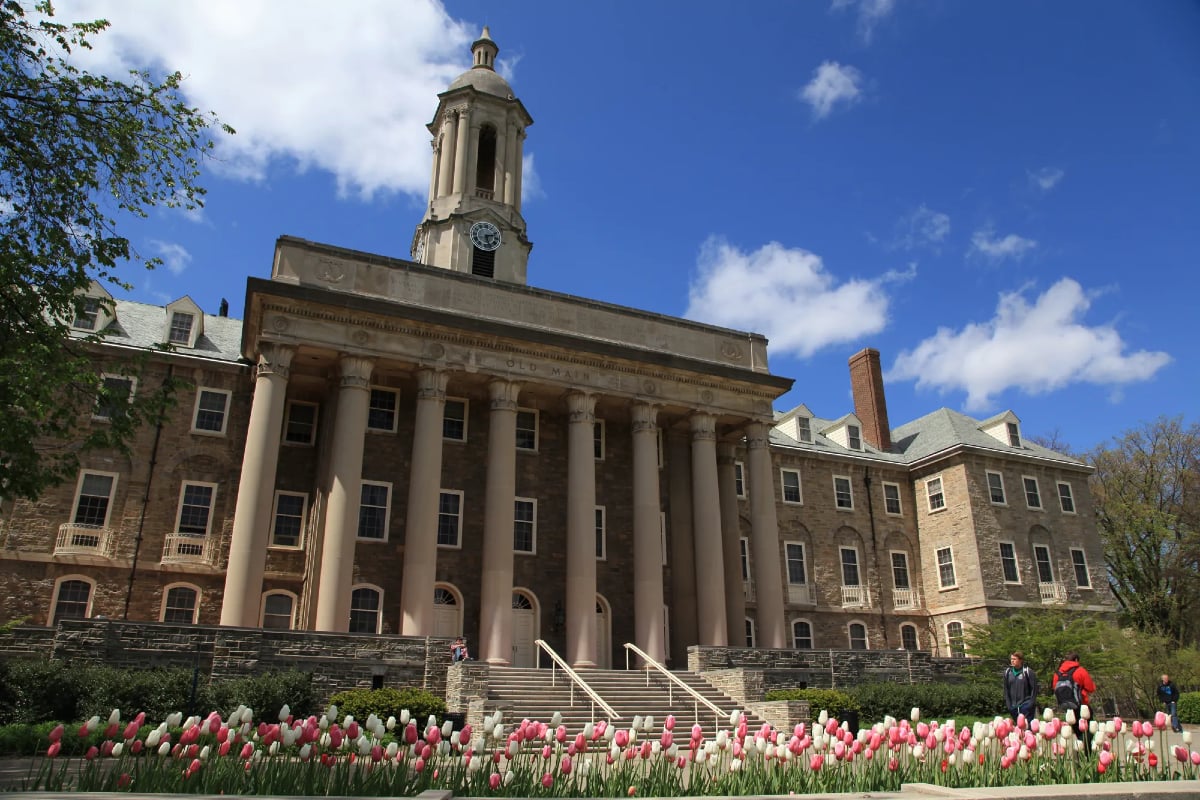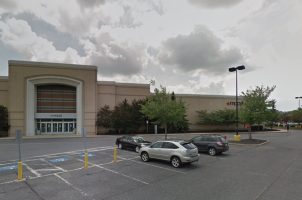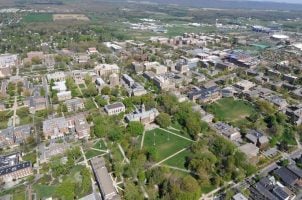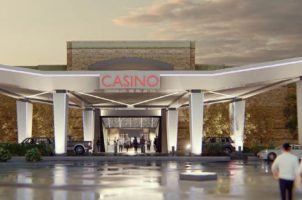Penn State University Staying Clear of Nittany Mall Casino Discussion
Posted on: September 26, 2022, 12:03h.
Last updated on: September 30, 2022, 04:34h.
Penn State University’s Board of Trustees won’t take a formal stance on whether it supports or opposes a proposed casino for the nearby Nittany Mall in College Township, Pa.

During the school board’s budget meeting last week at the Penn Stater Hotel and Conference Center, Trustee Chair Matthew Schuyler, a Penn State alum who is the chief brand officer for Hilton, addressed the casino issue.
Schuyler said the board received hundreds of emails and letters regarding Bally’s plan to spend $123 million to transform the former Macy’s department store at the Nittany Mall into a casino with as many as 750 slot machines, 30 table games, and a sportsbook.
“Understanding the unique and important role the university plays in the local community, we appreciate that residents are voicing their diverse opinions on this topic,” Schuyler said as the meeting began last Thursday.
“The proposed casino is planned for a property in College Township, but it is otherwise not associated with Penn State University,” Schuyler explained. “The board of trustees does not have a stance on this project, nor does the board have a means to promote or stop the development of a private, legal operation that has been approved by local and state officials.”
State Matter, Not University
Penn State is the largest college in Pennsylvania. Though it’s located in a rather remote part of the state, State College becomes the state’s third-most populated city during college football weekends when Beaver Stadium accommodates more than 100K fans.
The university’s board has governance on the main campus, but its influence extends throughout Centre County. But when it comes to whether casino gambling should be allowed in the community, the trustees are leaving it up to local elected officials and the Pennsylvania Gaming Control Board (PGCB).
Decisions regarding whether a casino can be opened are made by local municipalities and the Pennsylvania Gaming Control Board. And there are mechanisms in place for individuals to share their opposition to — or support of — this private endeavor with these decision-making entities,” Schuyler continued.
The trustee chair concluded that the board remains focused on assisting the university and its students with teaching, research, outreach missions, and campus safety.
Penn State alum and former trustee Ira Lubert is involved with the Bally’s State College plan. Lubert secured the Category 4 casino license during the PGCB’s September 2020 auction round. Lubert qualified to bid because he holds a 3% stake in Rivers Casino Pittsburgh.
Lubert later partnered with Bally’s for the Nittany Mall casino.
Council Mulls Options
In 2019, College Township councilors opted not to withdraw the town’s candidacy in being considered for a Category 4 casino. The local government seems to regret that decision now.
Fielding hundreds of letters in opposition to Bally’s casino plan, the township says it’s considering writing its own letter to the PGCB urging the state board to deny the project a gaming license. The township is also considering conducting a comprehensive review of a casino’s negative societal impact on the college community.
Penn State’s campus is less than two miles from where Bally’s hopes to open its casino. The PGCB is to meet next on Oct. 19.
Related News Articles
Most Popular
FTC: Casino Resort Fees Must Be Included in Upfront Hotel Rates
Genovese Capo Sentenced for Illegal Gambling on Long Island
NBA Referees Expose Sports Betting Abuse Following Steve Kerr Meltdown
UPDATE: Former Resorts World & MGM Grand Prez Loses Gaming License
Most Commented
-
UPDATE: Whiskey Pete’s Casino Near Las Vegas Closes
— December 20, 2024 — 30 Comments -
Caesars Virginia in Danville Now Accepting Hotel Room Reservations
— November 27, 2024 — 9 Comments -
UPDATE: Former Resorts World & MGM Grand Prez Loses Gaming License
— December 19, 2024 — 8 Comments -
FTC: Casino Resort Fees Must Be Included in Upfront Hotel Rates
— December 17, 2024 — 7 Comments
















Last Comments ( 24 )
As a gambling expert, Devin O'Connor expresses his self-serving opinion that a casino, 2 miles from the 48,000 undergraduate students at Penn State, a casino profiting a Penn State Trustee, is not something the University should comment on, but rather is something that should be left to the Pennsylvania Gaming Control Board and local politicians (whose township also stands to profit from the casino. I utterly disagree. A University's first obligation is to the welfare of it's students. The undergraduate years are impressionable and are known scientifically to be the time in a young person's life when he/she most susceptible to problem gambling. Even if this applied to only 5 percent of Penn State students, 2400 will have severe repercussions from living close to a gambling facility. Penn State has an obligation to provide, as much as possible, a wholesome atmosphere conducive to good mental health and learning. By staying silent on this topic, Penn State is abandoning those 2400 students to the likes of casino managers eager to manipulate any willing body who enters their lair. Penn State University prides itself as being a place of leaning and science, yet it ignores its leadership responsibilities in our community and beyond by leaving the Nittany Mall Casino decision to parties with solely financial interests.
I am in strong opposition to the proposed casino receiving a green light and establishing itself in our healthy, community minded and education-focused region. We have little to gain and much to lose by having to deal with the extremely negative effects a casino has on a community. In my opinion, Penn State governance should take a stance on the proposed casino and discourage it from being approved.
I urge PSU President as well as the Board of Trustees to make a statement in opposition and the College Township Council to continue forward in writing and sending the letter to PGCB advocating against it as expressed by local residents. Bally's should be asked to set up camp elsewhere, and not here in State College. We want to protect our students, our community; to make money and profits matter less than people. it is a tragedy that so far our university has NOT taken an educative stance in protecting the enterprise of education over profiteering. As a full Professor of Education Emerita, i have researched initiatives like this for almost half a century. Finally, i applaud all members of the community who have gone to great lengths to educate the people who play such a pivotal role in deciding that the Casino needs to be banned in Happy Valley. This is the local arena in which true democracy must overcome top-down profit and money oriented decisions.
I am really concerned with a Casino going at the Nittany mall. Our neighborhood does not need that. And definitely our kids do not need that. We have a wonderful community here and I feel that that would really just bring it down thank you
I'm a current Penn State student who's lived in the area for several years and know State College and Penn State quite well. It's incredibly disappointing to observe the largest educational institution in Pennsylvania turn a completely blind eye towards the numbers in this situation. The internet is not devoid of data on casinos and college students. A study titled "Internet gambling is common in college students and associated with poor mental health" conducted by Nancy M. Petry and Jeremiah Weinstock found that 23% of college students gamble online; 67% of those online gamblers are pathological gamblers. Even if a casino only produced pathological gamblers in a small fraction of the State College residents, some of that fraction is guaranteed to be Penn State's own college students. A bit of critical thinking shows more than a few college students would pick up gambling on the side. Obviously, this is detrimental towards their studies and towards Penn State's reputation. There is a blatant disconnect between the leadership claiming to care about students and families paying rising tuition and being "formally" silent towards a casino. WE ARE crippling ourselves by passively allowing a casino near Penn State.
I oppose the casino in our town and in such close proximity to students. I urge PSU Trustees to make a statement in opposition and the College Township Council to continue forward in writing and sending the letter to PGCB advocating against it as expressed by local residents. I also ask Bally's to set up camp elsewhere, and not here in State College.
The delay on this proposed State College mini-casino near Penn State is mainly due to a legal action by Stadium Casino RE, LLC (owned by Cordish Companies) against Ira Lubert and the Pennsylvania Gaming Control Board. The lawsuit alleges that Lubert’s offer for a casino license was disqualified for associating with other individuals and groups who were clearly not eligible to participate in the casino license bidding process. Initial arguments in the lawsuit were heard in the Pennsyvania Commonwealth Court on March 7. The court has yet to decide on this case which may not be settled before 2023. The license application might also be denied by the state's Gaming Control Board much sooner than that.
Penn State University's Board of Trustees and Penn State President Bendapudi adamantly refuse to accept, acknowledge, or believe that seventy-five percent of college students gambled during the past year (whether legally or illegally, on campus or off). While many of those college students old enough to legally gamble can do so responsibly, the most recent credible research estimates that 6 percent of all college students in the U.S. have a serious gambling problem that already has resulted in unmanageable debt and failing grades. Penn State says, "We don't think so and there is nothing to see here."
Nice post, thanks for sharing this valuable information.
The duplicity of the P$U BOT is uncon$cionable, in that their $ilence toward$ the un$eemly influence$ of a gro$$ly, out-of-place ca$ino, a mere 3.1 mile$ away from Penn $tate's main campu$, $peaks volume$ for their condoning a current BOT member, Rick $okolov, & a former PSU tru$tee, Ira Lubert, both ca$ino private financier$, many happy return$! The entire pre$ent P$U BOT $hould bru$h up on the P$U Alma Mater lyric$, "May no act of our$ bring $hame," for their collective deci$ion to not $trongly decry the approval of the gaming licen$e & $ubsequent ca$ino, is nothing but a morally bankrupt po$ition, $elling out their univer$ity'$ $tudent$, in order that 1 ex & 1 pre$ent P$U BOT member$, can reap ma$$ive financial gain$, at the expen$e of the Penn State main campu$ $tudent body. For $hame! For $hame!
Consider this statement from the discussion section of a clinical research study published last year by the Journal of Addiction and Addictive Disorders, titled "Does Easy Access to Casinos Influence Addictive Gambling Behavior by College Students? The Potential Role of Tribal Gaming in America": "Finally, we are the first study to our knowledge to examine whether students believe that casino proximity increases their gambling behavior, supporting our hypothesis that those who are problem gamblers more likely to agree with the statement, 'The close proximity of casinos to campus increases my participation in gambling.' This finding is indicative of a relationship between casino proximity and problem gambling." While our demographics are somewhat different from those studied, the similarities (and general research findings) far outweigh the differences. Studies seem to indicate that at least 6% (but possibly as high as 15-16%) of college students may develop what is termed "problem and pathological gambling" during the college-age years. Six percent of 48,000 University Park students works out to 2,880 students. I am not suggesting an exact prediction or a perfect correlation, but that is a sobering statement that should give University administrators pause. This is not a time to plead inability to act within a sphere. It is time to step up and join the alarm being raised.
I implore the PSU Board of Trustees (BoT), as a group and as individual members, to prove that they genuinely care about the campus students by publicly speaking against the proposed casino in the "back yard" in order to prevent some students from inevitably developing gambling "diseases" like addiction to gambling. Since the casino would only lucratively benefit the owners, I hope the BoT does something to help protect the students they should be serving from this potential Pandora's box of gambling and related problems that affect people and families where casinos exist.
The primary purpose of Penn State, and any other Land Grant University, is to educate its students, turning them into responsible, productive citizens of the state. Having a casino 2 miles from University Park is directly undermining its very purpose, and that is why I think that the University should be taking a stand in opposition to this. Students do not have a great deal of money to spend on gambling - many of them have to choose between paying the rent, buying food, and keeping up with their tuition bills. In my opinion, Bally's should look for a location which will attract adult gamblers who have money to spend, and that is NOT College Township - except for a few home football weekends in State College in the Fall.
The only "diverse opinions" in that feedback are the diverse reasons cited regarding why the University should oppose the development of this casino less than 5 miles from its flagship campus. Of the 221 messages in that feedback to the Trustees: 213 oppose the casino 8 address other topics 0 support the casino The ideas that Penn State's Board of Trustees cannot do anything to influence the development of this casino and that they do not have a stance on this casino is laughable. An easy first step might be to ask current Penn State Trustee Rick Sokolov (who is also a vice-president of the company that former PSU Trustee Chairman Ira Lubert established to build this casino) to have the casino built elsewhere -- or maybe they could have a heart-to-heart conversation with Mr. Lubert himself during one of his many meetings with Penn State's senior leadership. It would also be easy for the Board to make a public statement that it is not in the University's interests to have any casino located near the 48,000 students at Penn State University Park, or for them to send a letter to the Pennsylvania Gaming Control Board asking for this casino's license to be denied. Former Penn State President Eric Barron wrote to the PGCB to oppose sports betting when it was legalized in Pennsylvania several years ago, citing its negative impacts on college athletics. If the developers of this casino did not include current and former Penn State Trustees, there is no way the University would allow its students to be preyed upon in this manner now. There is an investigative journalism award just waiting to be won by the first reporter who exposes the conflicts of interest that are preventing Penn State's Board members from upholding their responsibilities to protect the University's interests...
As the key Bally’s Corporation decision-makers rapidly skim through this update, they should focus on this sentence included above: "The local government seems to regret that decision now." How often does Bally’s see that prior to the approval of a casino's license application?
Comments are closed.